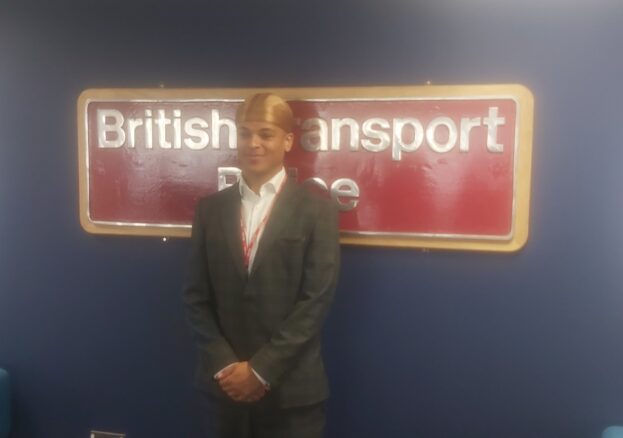
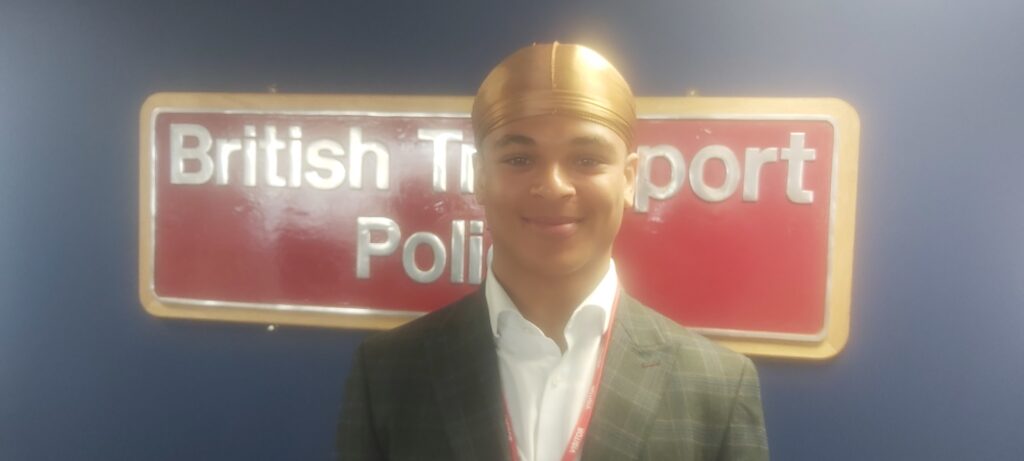
Jaydan Okunola. Photo by Kwaku
Learning about 19-year-old Jaydan Okunola has been a revelation. Despite a turbulent adolescence that could have derailed his future, this young man from Richmond upon Thames, has triumphed. Now entering his second year at King’s College London law school, Jaydan is eager to expand his circle of friends and launch a charity to mentor mis-diagnosed and disadvantaged youth at risk of exclusion. Jaydan describes his birth as being born “into chaos.”
Of his biological parents, his Nigerian father was absent, in and out of prison, while his English mother and her partner were convicted of doing cruelty to a child under 16.
Adopted at age 3, Jaydan went through multiple care families, faced numerous school suspensions, and attended four secondary schools. At his last school, Orleans Park in Twickenham, south London, his focus wavered until a football injury shattered his dreams of a professional career.
This setback became a turning point, steering him away from potential failure and the criminal justice system. “I wasn’t focusing on my grades. At the end of Year 12, they were quite bad – B, D, E, not really going anywhere,” Jaydan recalls. Post-surgery from his injuries, he adds, “I figured that I should kind of put that spare time to studying, because I knew I had the aptitude when I wanted to.”
This shift was transformative for Jaydan, who had encountered the dangers of county lines – for those that don’t know, and I didn’t until I spoke with Jaydan, this is a drug trafficking model where gangs exploit vulnerable youths to transport drugs and money across regions, often crossing police and local authority boundaries.
In his final school year in 2024, Jaydan’s turnaround was remarkable. He was part of the student leadership team and earned the Excellence for All award from his school and the Young Person of the Year award from the Achieving for Children charity. To cap it all, his A-level results, an A* and two As, exceeded predictions, securing his place at King’s.
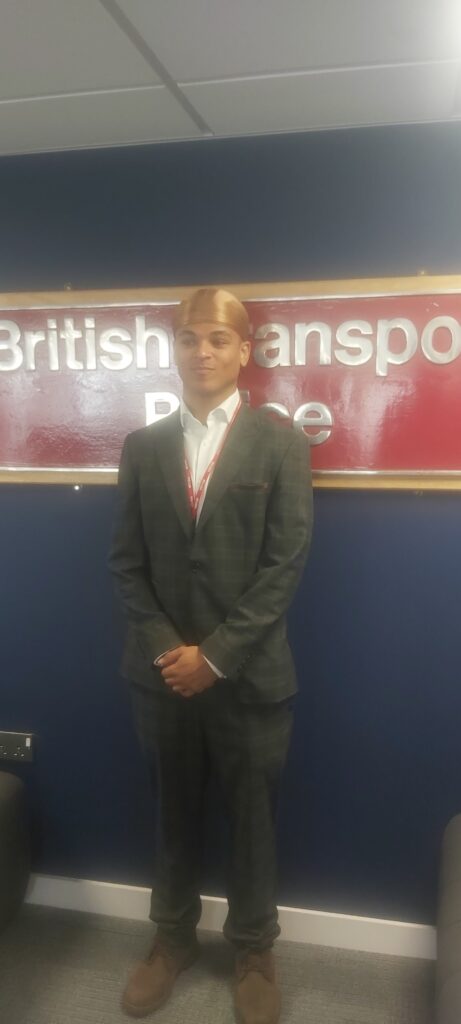
Jaydan Okunola. Photo by Kwaku
“That was above my predicted grades,” he notes proudly. Discovering the Aya Bursary on the King’s website was pivotal. Without it, Jaydan might have delayed starting university to save funds, by taking “a gap year to get some money in the bank,” he says.
This is good to hear, as I had a hand in getting the bursary instituted. It was sparked by feedback from a 2021 African History Season Zoom session I delivered for BTWSC/African Histories Revisited. The session explored wrongful arrests of multiple African youths in the 1970s, including cases like the Mangrove 9, Cricklewood 12, Stockwell 6 and Oval 4, where in the case of the latter, innocent African youths were framed by corrupt British Transport Police (BTP) officer DS Derek Ridgewell and his accomplices.
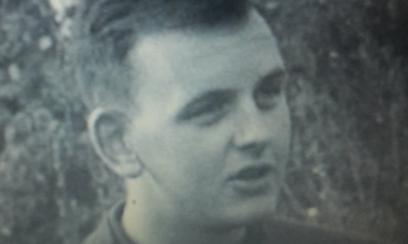
DS Derek Ridgewell
As by now, some of the convictions were beginning to be quashed, attendees urged BTWSC to seek an apology and restitution from the BTP. With support from community leaders, and individuals including the late Courtney Griffiths KC and Trevor Trew – whose Oval 4 conviction was overturned in 2019 and who has written two books on the subject, we succeeded.
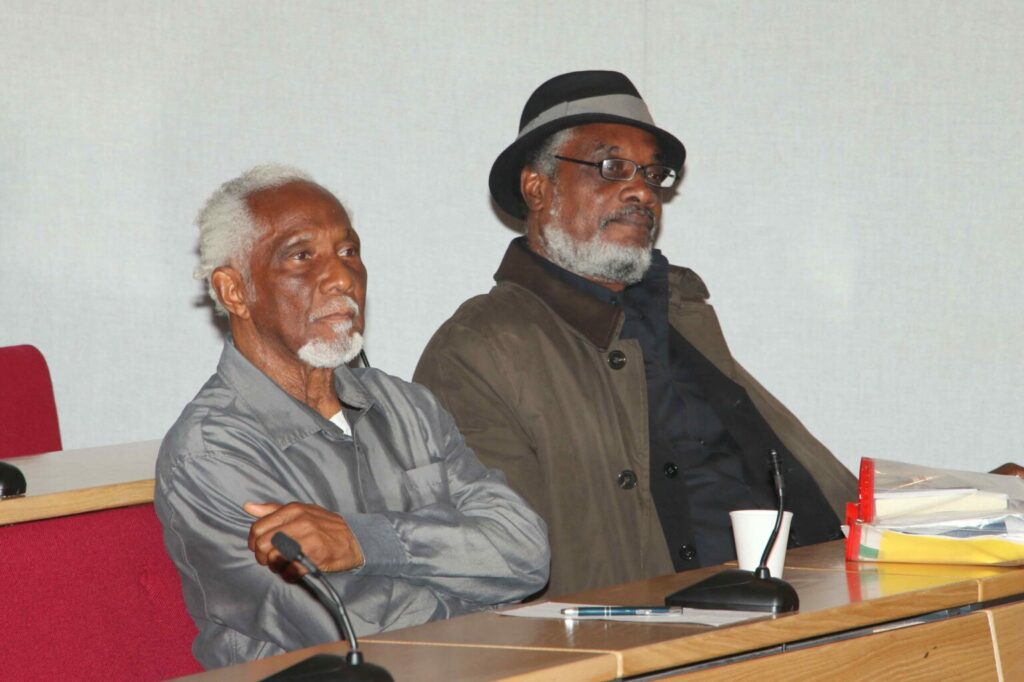
L: Eric Huntley, R: Winston Trew. Photo by Des Chisholm
A swift and forthright apology was received from BTP Chief Constable Lucy D’Orsi, which in part read: “I am sincerely sorry for the trauma suffered by the British African community through the criminal actions of former police officer DS Derek Ridgewell who worked in BTP during the 1960s and 70s. In particular, it is of regret that we did not act sooner to end his criminalisation of British Africans, which led to the conviction of innocent people.”
The restitution, symbolic as it is, took longer, as the Chief Constable had to manoeuvre through red tape, to get the funding for the Aya Bursary. It provides £75,000 to support tuition and living costs for a student of African/African Caribbean heritage during a three-year LLB Law degree at King’s.
The BTP has committed to only one cycle so far. In addition to looking for potential donors to sponsor or part-sponsor future cycles, efforts are underway to persuade the BTP to continue funding, given Ridgewell’s prolonged misdeeds and the ongoing availability of Proceeds of Crime funds, the source of the bursary’s cash.
For now, we’re glad that the bursary has transformed the life of someone like Jaydan. A care leaver, he balances his studies with volunteering, including work with the Afghanistan and Central Asian Association on a Ministry of Justice Probation Project helping refugees.
Looking ahead, Jaydan is already planning to give back with his schools-focused intervention programmes aimed particularly at “neurodivergent, trauma experienced and children from disadvantaged backgrounds”, through his newly formed charity, Tomorrow’s Changed Society’s Changed Society.
Financial support for this initiative can be offered via a crowdfunding appeal at https://gofund.me/f8dd97ac.
Kwaku is an independent history researcher and historical
musicologist.
